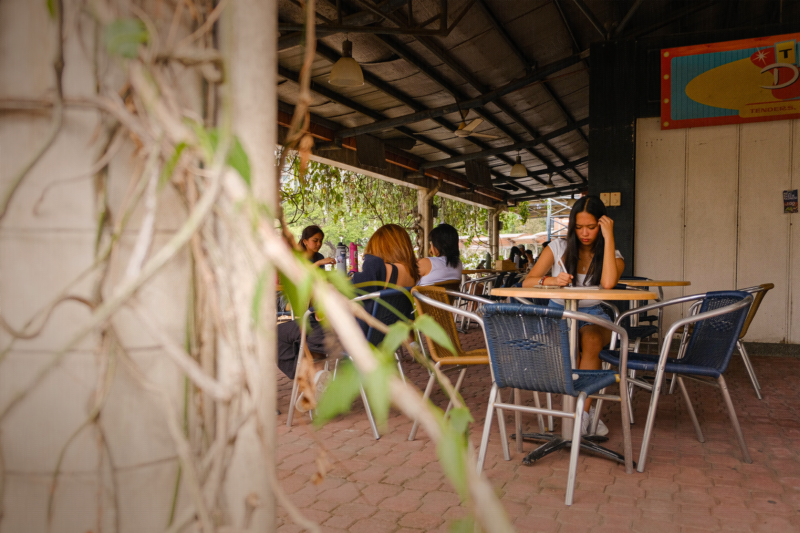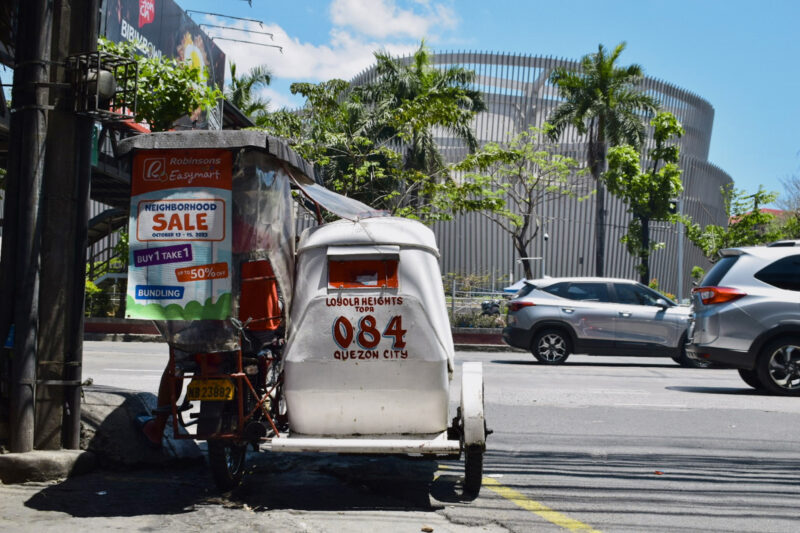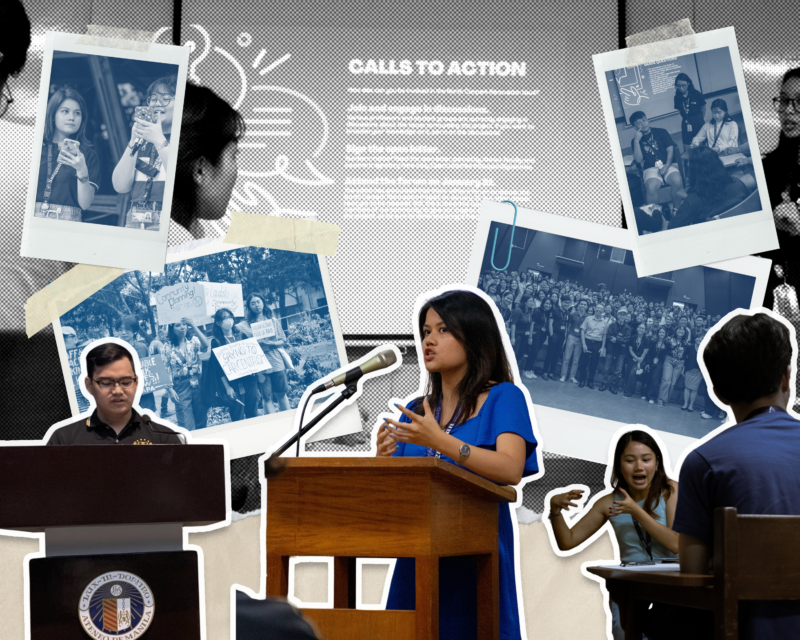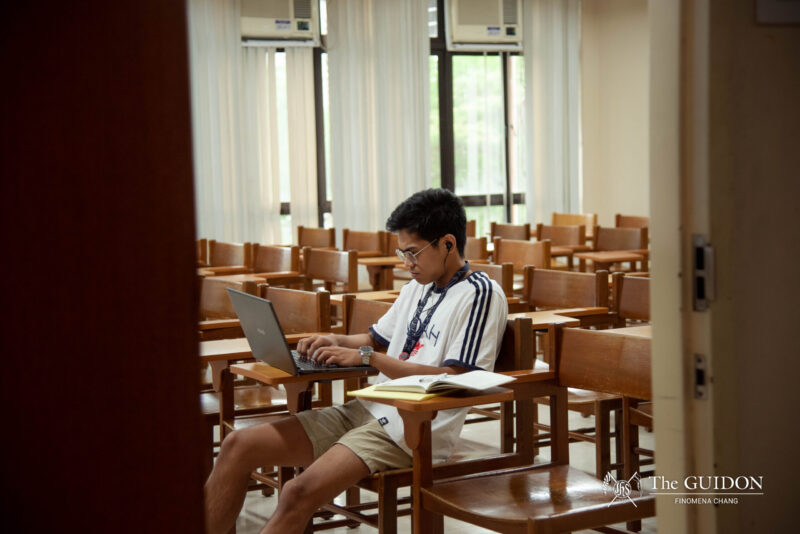TAKING ON leadership roles in student organizations forms a significant part of Ateneans’ holistic growth. For many, becoming a student-leader allows them to develop their leadership and organizational skills, form meaningful relationships, and build connections.
However, the prevailing culture of accountability—often referred to as the idea of owning up to responsibility—daunts some Loyola Schools (LS) students to step up and lead. While the culture of accountability proves vital in providing proactive and efficient service, organizational leaders and members are now challenged to exhibit a sense of responsibility and openness to growth when serving in student organizations.
Rising to the occasion
The call for service grows in urgency every year, and the leaders are placed under even greater pressure to do better than their predecessors.
This is especially apparent in the LS Sanggunian. During the annual Sanggunian elections, the number of students running for office is considered a factor in determining the success of the elections, as it may influence voter turnout. It may also set a precedent for the organizational dynamics of the upcoming academic year.
For this year, Ateneo Commission on Elections Chief Commissioner Roanne Pepito (2 AB PSY) notes that there are “narrowly more candidates compared to last year.” However, there is a noticeable incompleteness of the Top 6 candidates, with a missing School of Science and Engineering Representative. Similar concerns have been observed in the 2019 and 2022 elections.
When asked about the possible factors behind this phenomenon, Pepito believes that persistence to serve comes into play. “You should be interested in the student body to even want to study it. […] You have to be willing to put up with all the bureaucracy, all the politics to want to stay in the job,” they say.
Despite this, interest is not always enough to sustain one’s will to assume positions.
Incumbent Sanggunian Vice President Danielle Therese Andres recalls that, regardless of being in the Sanggunian since freshman year, she still had feelings of hesitation and doubt when she ran for the vice presidency. With her other commitments, she was worried that she might not be ready to carry out the responsibilities that would come should she be elected.
Andres had only decided to run after consulting with her mentor who first invited her to join the Sanggunian. After meeting with her senior, she realized, “It was my own disposition [that] I know that I cannot make myself fully assured but I know that I can make myself well-prepared enough for the position.”
As she contended for the vice presidency, she also kept accountability in mind during her decision process. For Andres, this comes hand-in-hand with transparency, as leaders must be able to justify their actions when questioned.
She emphasizes, “When taking leadership roles, accountability should not be an afterthought. They should be ready to be held accountable.”
However, accountability is not solely placed on leaders. Andres clarifies that accountability is bidirectional—both from leaders to members and vice versa. With this, it is important for students to grasp the implications of accountability in their organizations.
When cancel culture cancels accountability
Having a sense of accountability from leaders can positively impact an organization by increasing its efficiency and productivity. However, the culture of accountability can also weigh heavily on the organization’s leaders and members.
Traditional forms of accountability, which are often rule-based, bear consequences that are punitive. While some might consider this measure as a positive challenge to better deliver their commitments, those who fail to perform their tasks well may also endure a sense of blame, guilt, and embarrassment. These can prompt them to feel discouraged and even lead them to abandon their work.
This negative form of accountability can be detrimental to individual and organizational growth. When this form of accountability is used to pressure members and leaders to perform, the organization’s culture may become toxic with the possible emergence of fear, thus limiting space for learning from failures.
Even in student organizations, these adverse effects of accountability can also occur.
Council of Organizations of the Ateneo (COA-M) President Nina San Andres recognizes that this form of accountability culture can set a fearful environment among student organizations. “When people try to hold [their] leaders accountable, sometimes [it is not] as productive on both ends when they just complain about things rather than the criticism being constructive,” she explains.
However, San Andres also points out the pivotal role of cancel culture in the buildup of this toxic environment. She notes that due to the said culture, people tend to “criticize you so hard” for having a mistake, regardless of severity.
Otherwise known as “call-out culture,” cancel culture ideally aims to confront and educate people who show ignorance towards significant and pressing issues. However, it is sometimes used as a facade for senseless attacks and even cyberbullying.
Andres adds, “Cancel culture really promotes the sense that when you make a mistake, you can never bounce back from it, as if a single mistake can define a person’s life.”
Despite this emerging online phenomenon, San Andres gladly shares that the dynamics in LS student organizations at present have been “more calm and communicative.” Compared to when tension within the organizations was more present in previous years, she shares that the current communication-driven coordination within LS student organizations allows for respect to thrive among these student groups.
She acknowledges that as long as accountability does not impede the growth of the organization and its members, it remains to be crucial for a healthy and productive working environment.
Sustaining balance
In a bid to create a more welcoming organizational culture in the LS, organizations and students alike must continue to strive for a balance between accountability and growth. To do so, San Andres specifies that organizations must encourage dialogue and an exchange of ideas between their members to further foster an evolving environment.
For parties involved in such discussions, they must keep in mind the fine line between constructive criticism and complaints, then distinguish between the two. It is imperative that one utilizes disapproval as an opportunity to evaluate and reconstruct their systems. After all, leaders within these student organizations are still students who are continuously improving.
In terms of member development, there is also a factor of accountability involved, as many students may lack the necessary support to reach their full potential.
As such, San Andres suggests that leaders are not only responsible for their present term but also for the succeeding ones. They must aid members with mentoring opportunities so members can be immersed, allowing them to visualize themselves in leadership positions. Amid this, students must also remember that the life cycle in organizations is not always progression.
San Andres stressed, “Ateneo gives their students a lot of avenues and not just organizations. It’s very contextual to each person. I think we need to stop pressuring people with the need to step up.”
Given the pressure brought about by the culture of accountability, heeding the call can be an intimidating responsibility to bear. Despite these, however, many Ateneans continue to give their shot at student service, in the hopes of learning and growing while at work.







